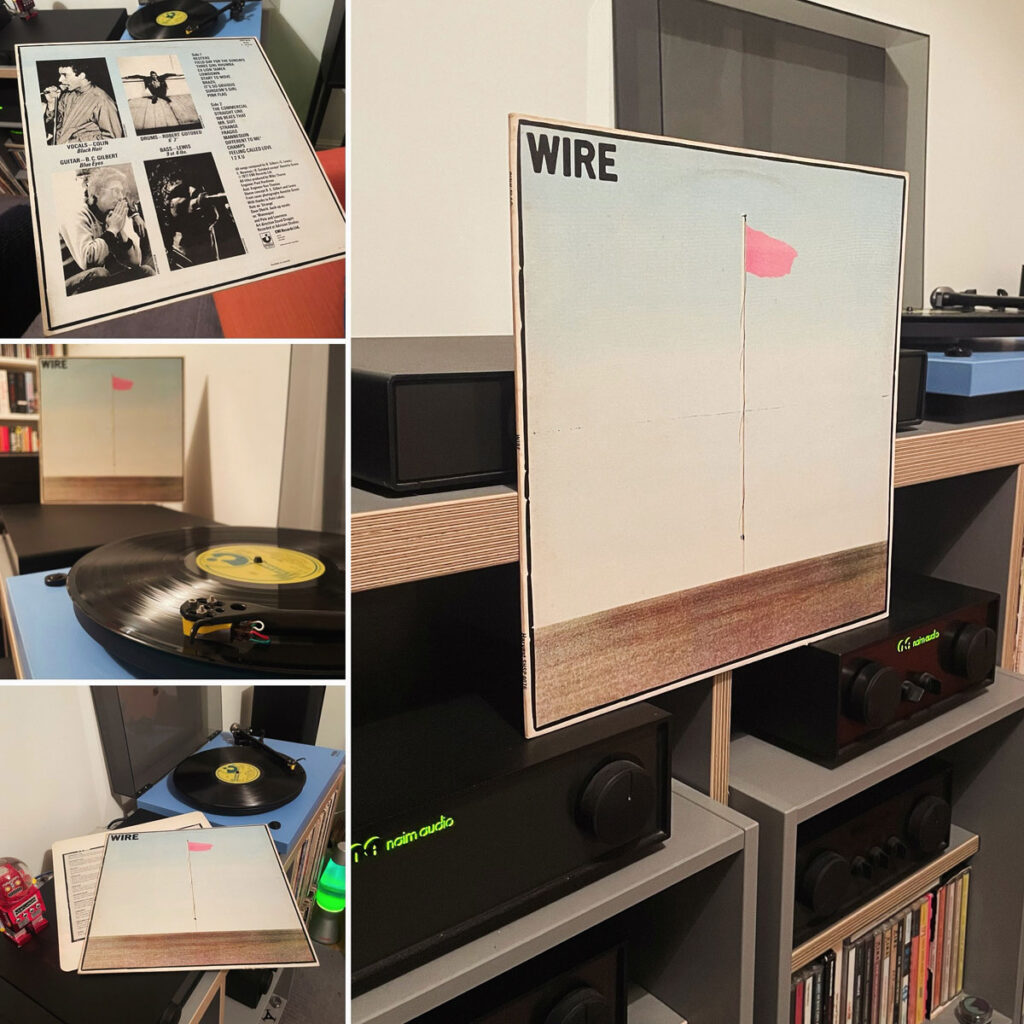Another in a series of classic album reviews, with a sprinkling of intel that may be new to you. So whether you are a lifelong music fan or new to vinyl and want clues, grab a coffee.

Pink Flag isn’t just an album; it’s a surgical strike against the bloated corpse of rock ‘n’ roll. In a year when punk was spitting fire and sneering at the establishment, Wire delivered a record that wasn’t just a fistful of rebellion but a blueprint for how to burn the whole house down and start again.
From the moment the jagged riff of “Reuters” punches through the air, you know you’re not in Kansas or even the King’s Road, anymore. Wire took punk’s stripped-down ethos and stripped it even further, eschewing the cartoonish fury of their contemporaries for something cooler, sharper, and frankly, more dangerous. This isn’t music that demands you pogo; it demands you think.
Wire’s influences are etched into every angular note: the raw energy of The Ramones, the art-school ambition of early Roxy Music, and the austere minimalism of krautrock bands like Can and Neu!. But Pink Flag isn’t a mere patchwork of borrowed sounds. It’s a distillation of those ideas into something startlingly original.
With 21 tracks clocking in at just over 35 minutes, Wire redefined what a punk song could be. Take “Field Day for the Sundays,” which explodes in just 28 seconds, or “12XU,” a proto-hardcore missile that set the template for bands like Minor Threat years down the line. But it’s not all speed and aggression. “Strange” oozes unsettling menace (later covered by R.E.M.) while “Ex-Lion Tamer” balances its nervous energy with an almost robotic precision.
The genius of Pink Flag lies in its contradictions. It’s minimalist but densely packed with ideas. It’s confrontational but avoids punk’s chest-thumping clichés. It’s detached, yet every note bristles with intent. Bruce Gilbert’s angular guitar riffs, Graham Lewis’s churning bass lines, and Robert Gotobed’s taut drumming provide the perfect backdrop for Colin Newman’s deadpan delivery, which cuts like a scalpel through the chaos.
In 1977, Pink Flag stood apart from the punk explosion. It wasn’t chasing the charts like the Sex Pistols or indulging in rock ‘n’ roll mythology like The Clash. It was smarter, artier, and infinitely more subversive. This wasn’t music for the masses; it was music for those ready to tear down the old order and imagine something new.
Wire’s influence rippled out far beyond the grimy clubs of ’77. Post-punk, hardcore, indie rock, all owe a debt to Pink Flag. Bands like Joy Division, Sonic Youth, and even the aforementioned R.E.M. took cues from its skeletal structures and refusal to play by the rules. Decades later, it still sounds like the future: terse, taut, and utterly uncompromising.
Wire didn’t just wave a pink flag; they planted it defiantly in the ground and dared anyone to follow. Most couldn’t. Some didn’t even try.
Essential Tracks: “Reuters,” “Ex-Lion Tamer,” “12XU” “Mannequin” “Fragile” Oh, the whole album.
Verdict: A razor-sharp manifesto that shattered punk’s mold and laid the foundation for the avant-garde edge of rock.